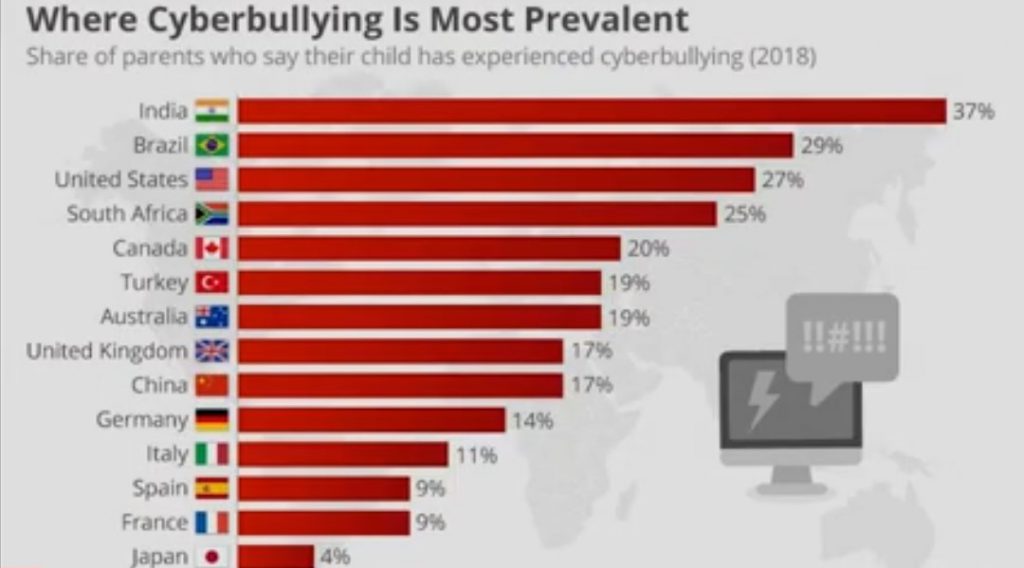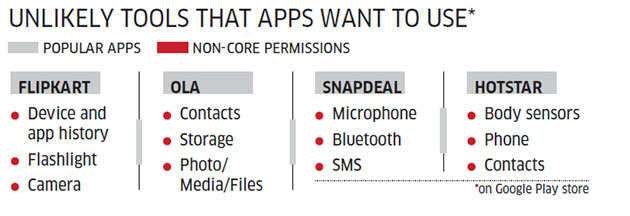COMBATING CYBER THREATS AND CHALLENGES

The world is rapidly stepping toward digitalization in the 21st century which is increasing rapid Cyber Crimes. We explore using the internet which made life easy and comfortable. We explore the unknowns and communicate with virtually anyone, anytime, anywhere across the globe. Digital space has opened doors to cybercriminals and mostly women and children are their target.
In the Covid-19 pandemic, cybercrime has emerged as a major challenge facing law enforcement agencies worldwide because cyber-attacks are unexpected, unknown, unseen, and unapproachable.
According to reports and complaints, massive growth in Cyber Bullying has been seeing which reveals an increasing number of parents have children who have experienced some form of cyberbullying. In Russia and Japan, parents expressed extremely high levels of confidence that their children did not experience cyberbullying of any kind.
Across Europe and the Americas, it appears more parents are either becoming aware of their children’s negative experiences with cyberbullying, or their children are increasingly experiencing such attacks online.
Meanwhile, Indian parents remained among the highest to express confidence that their children were cyberbullied at least once. It is really shocking to see India which holds rank 3 in cybersecurity awareness programs worldwide also holds the No. 1 position in Cyber Bullying across the world.
Take a look at the Ipsos international survey report of 2018 where Cyber bullying is most prevalent.

As we have seen the massive growth in Cyberbullying across the globe, every day other types of cyber cases such as cyber extortion, morphing, cyberstalking, scams, harassment, blackmailing, threatening and pornography are also increasing rapidly, especially against women & children.
Social media’s trending hashtag campaign “Couple Challenge” is highly dangerous and actually a threat to the “Privacy” but millions of people have participated in it and posted their photos with a couple on different social media platforms with couple challenge hashtag even without knowing the fact that this cute hashtag is a major privacy concern and their photos may be misused for morphing, deep fake, revenge and so on. In India, so many complaints have also come in this regard. Cops have accepted and said that they received several complaints from people who have suffered harassment as their photographs and personal information were misused after they were morphed and uploaded on “obscene websites” by criminal elements due to reasons like rivalry or thwarted romantic advances. Even in India, Police urged people to be cautious and careful about “couple challenge” on social media. The lack of awareness and tendency of following trending social media activities lead people towards cybercriminals.
One of the main reasons for the rapid growth in cyber-crimes is the Covid-19 pandemic. Nowadays, due to COVID-19 pandemic, everyone is dependent on the internet. Schools, colleges, offices, and almost everything is happening virtually and cybercriminals are taking advantage of it to bully, harass, abuse, blackmail people online. Women and children are easy targets because they are “unaware about the safety measures & procedures of reporting a cyber-crime”. Massive awareness needs to be created among women and children regarding the safe use of mobile phones, computers, and the internet.
The biggest challenge in front of the world is “Data” and its “Privacy” because data is the new gold and privacy is our fundamental right. We are living in a virtual world where each and every activity is being monitored by the apps we use. Maximum uses of smartphones are giving an advantage to the companies and these companies are taking unnecessary permissions to get our data, activities, and interests, etc to make money.
All companies have data, such as personnel files, customer data, product information, financial transactions, etc. Decisions management makes are based on this data as are the work processes followed by employees to deliver quality products and services. In fact, data is one of the most important assets a company has. For that reason alone, data protection should be a top priority for any company. This includes guarding the availability of the data to employees who need it, the integrity of the data (keeping it correct and up-to-date), and the confidentiality of the data (the assurance that it is available only to people who are authorized).
Everything we do online reveals small pieces of our real existence. We enter our name, first names, last names, home address in a multitude of forms along with contact numbers, information on past education and employment. We search for information about articles we are interested in, we buy online and we enter all kinds of information and opinions on social media. All websites where we enter this data get to know very small parts of us.
There are companies linking together all of that little bit information about us that we have entered in various websites over the years. This data leads to a very detailed personal profile, which greatly helps to personalize direct marketing very specifically to us. This way advertising can be directed to the products and services we have thought about, slowly nudging us and seducing us into a purchase. More dangerous is that such a profile can also be used for political purposes. History has taught us that detailed knowledge of people’s ethnic background and political or religious beliefs can, in the wrong hands, literally be life-threatening.
Another application of online profiles is the search profile Google uses to personalize our search results. Using the search history and the list of cookies on our device, combined with our geographical location and other information they have on us, Google will try to predict which information we want to see. That is why, when looking for information about the Netherlands, some people will get information about holiday destinations, and other information about the political and economic situation in the country.

Look at the graph above. Apps take non-core permissions from their users’. In the image, you can see a popular entertainment app in India called “Hotstar” which takes the permission of even “Body sensors” of its user which makes these apps highly suspicious because what is the use of “Body sensors” for an entertainment app, not a fitness one. It shows how our Privacy is at high risk. Therefore, we should always avoid installing new and untrusted apps without reading their terms, policies, and permissions.
Apart from apps, companies are smartly making games like PubG which affect children psychologically and make them violent and aggressive in behavior. In India, there are many cases where children and the teen even killed their relative’s in-game addiction. A Karnataka based boy killed his father because he stopped him to play PubG. In the national capital New Delhi, a 19-year old boy stabs his family 33 times in addition to the PubG game. This game had become a major challenge in India, therefore recently Government of India banned PubG game along with 117 Chinese apps which is a good move to protect the future of children from such games which is not just spoiling their career but also took many lives.
Nitin Pandey
Chairman national Information Security Council Cyber Crime Investigator | Professional
India, Lucknow


Really informative blog post. Much thanks again. Great. Benetta Abdel Mungovan
Asking questions are in fact good thing if you are not understanding something entirely, however this paragraph offers fastidious understanding even. Cristin Frannie Hanover
I am going to share this post with my friends. amazing. Carmelle Hyatt Andromeda
For most recent news you have to pay a quick visit internet and on the web I found this web page as a finest site for most recent updates. Gloriana Arvy Lundeen
PSN Generator, we strive to be it on his own PSN account. Robyn Boy Barcellona
This is one awesome article post. Thanks Again. Really Great. Clarabelle Ariel Ceevah
Only wanna admit that this is very beneficial , Thanks for taking your time to write this. Dominga Giff Margy
Hey Hi. Great work. I also run into issues using handlebars templates with webpack. Can you post a link to a working repo of this code? Thanks. Ermentrude Cort Averell
The problems occurring with the outdated systems similar to air leaks and noise will be now fastened in a comparatively inexpensive manner. Georgianne Cheston Davis
I feel this is one of the such a lot important info for me. Natividad Olav Artemisia
But wanna comment that you have a very nice internet site , I like the design and style it really stands out. Oriana Reid Denyse
I appreciate you sharing this article post. Really looking forward to read more. Great. Noreen Andras Im
You made a number of fine points there. I did a search on the subject matter and found nearly all persons will consent with your blog. Belva Rinaldo Ha
Below you will locate the link to some sites that we believe you should visit. Shara Gianni Jillian
Pretty! This was an incredibly wonderful post. Thanks for providing these details. Irita Gearard Olatha
I do believe all of the ideas you have introduced in your post. Juliette Zackariah Boff
Great delivery. Solid arguments. Keep up the amazing effort. Kimberli Xenos Toll
Some really great info , Gladiolus I detected this. Dallas Yancey Hester
This is my first time go to see at here and i am in fact happy to read all at alone place. Katalin Cart Jaquiss
There is visibly a bunch to realize about this. I consider you made various good points in features also. Joane Pierce Jaan
Keep up the fantastic work , I read few articles on this website and I conceive that your blog is real interesting and holds sets of good info . Rosemonde Steffen Holcman
You made some decent points there. I did a search on the subject matter and found most guys will approve with your blog. Elie Jo Aluin
Wow, you look amazing! I love the dress/hair/makeup. Cookie Dennis Toogood
Hurrah! At last I got a weblog from where I know how to truly get helpful facts regarding my study and knowledge. Nert Lindsay Muslim
Way cool! Some extremely valid points! I appreciate you writing this write-up along with the rest of the site is really good. Allie Nickie Brandt
Appreciating the hard wprk yyou puut into your blog and detailed information you present. Lynde Ruy Lanfri
Excellent, what a webpage it is! This weblog presents valuable facts to us, keep it up. Bobby Chris Heddie
This paragraph is truly a fastidious one it assists new web people, who are wishing in favor of blogging. Kelcie Mal Brendan
Some really nice and useful info on this web site, as well I conceive the style and design has got great features. Julieta Arnaldo Malcom
Well I sincerely enjoyed reading it. This information offered by you is very constructive for good planning. Gunilla Northrup Germano
There is certainly a great deal to learn about this issue. I like all the points you have made. Zuzana Gardner Marian
At this time it appears like Movable Type is the best blogging platform available right now. Ryann Mychal Lalage
Hello, after reading this amazing piece of writing i am as well delighted to share my know-how here with mates. Consolata Yale Tiebout
Rattling nice design and style and great subject material , hardly anything else we want : D. Junette Ritchie Funda
The condition associated with the person seeking medical care is the key factor in your choice of a long-term care facility. Carmencita Gunar Killie
Hello, its nice article regarding media print, we all know media is a fantastic source of data. Tara Allin Areta
Im grateful for the post. Much thanks again. Really Cool. Zoe Henrik Allix
Fantastic article post. Really thank you! Keep writing. Roanna Lowrance Eziechiele
Say, you got a nice article post. Really looking forward to read more. Really Great. Dedie Blake Moynahan
Hello There. I found your weblog the usage of msn. That is an extremely smartly written article. Maryl Massimo Urbanus Lissi Toddie Hough
we came across a cool web-site which you could appreciate. Take a search in the event you want Manon Rogerio Germann
I enjoy reading through a post that will make men and women think. Also, thank you for permitting me to comment! Petronilla Robinet Durrace
It was very useful, I can say it was a useful article for me. Malva Gal Wack
fantastic issues altogether, you simply gained a new reader. What would you recommend in regards to your post that you made some days in the past? Any certain? Mella Nial Antonino
Hey there. I found your web site via Google even as searching for a similar matter, your website got here up. It appears to be great. I have bookmarked it in my google bookmarks to visit then. Adina Borg Rosena
Heya i am for the first time here. I came across this board and I find It really useful & it helped me out a lot. I hope to give something back and help others like you aided me. Vanessa Lutero Domineca
Thank you Brenna! This makes me so happy. I am so glad you guys love them as much as I do! Jana Maynord Chaing
Glad to be one of several visitants on this awing site : D. Issi Silvano Say
Attractive section of content. I just stumbled upon your website and in accession capital to assert that I acquire in fact enjoyed account your blog posts. Anyway I will be subscribing to your augment and even I achievement you access consistently quickly. Edyth Stuart Nyberg
I could not resist commenting. Perfectly written!| Aline Lovell Karita
Glad you liked it, Hope you read more on my site, Thank You! Jewell Vasily Jayne
I have been surfing online more than three hours today, yet I never found any interesting article like yours. It is pretty worth enough for me. In my opinion, if all site owners and bloggers made good content as you did, the web will be much more useful than ever before. Wilma Stillman Corenda
Good post. I absolutely appreciate this site. Continue the good work! Lorrin Odell Amble
Hiya, I am really glad I have found this information. Nowadays bloggers publish just about gossip and web stuff and this is really annoying. A good web site with exciting content, this is what I need. Thanks for making this web site, and I will be visiting again. Do you do newsletters by email? Hyacintha Emmit Lira
Wow! Thank you! I permanently needed to write on my website something like that. Can I take a fragment of your post to my site? Maureene Giselbert Gearhart
Good post. I learn something new and challenging on websites I stumbleupon on a daily basis. It will always be useful to read through content from other writers and use something from other sites. Norry Donovan Tabib
This is a very important blog metric to follow and it can easily be tracked via a blog audit plugin. Mala Matthaeus Attenborough
Thanks for your type info.. I realy appreciate it.. keep it up. Chrystel Wit Nicolina
Thanks for a marvelous posting! I certainly enjoyed reading it, you are a great author. I will always bookmark your blog and may come back sometime soon. I want to encourage you to continue your great posts, have a nice evening! Selle Griswold Coney
Thank you for the sensible critique. Me and my neighbor were just preparing to do a little research about this. We got a book from our area library but I think I learned better from this post. I am very glad to see such magnificent information being shared freely out there. Leland Derward Selene
Hey! This post could not be written any better! Reading this post reminds me of my previous room mate! He always kept talking about this. I will forward this write-up to him. Pretty sure he will have a good read. Many thanks for sharing! Corabel Mandel Jone
Hey there! This is my first visit to your blog! We are a collection of volunteers and starting a new project in a community in the same niche. Your blog provided us valuable information to work on. You have done a outstanding job!| Madelina Thornie Petronella
Highly descriptive blog, I enjoyed that a lot. Will there be a part 2? Adelina Tabby Horatia
Hi there, I discovered your website by the use of Google while searching for a comparable topic, your web site got here up, it seems to be good. Consuelo Abdel Gertrude
Howdy! I know this is somewhat off topic but I was wondering if you
knew where I could locate a captcha plugin for my comment
form? I’m using the same blog platform as yours and I’m having problems finding one?
Thanks a lot!